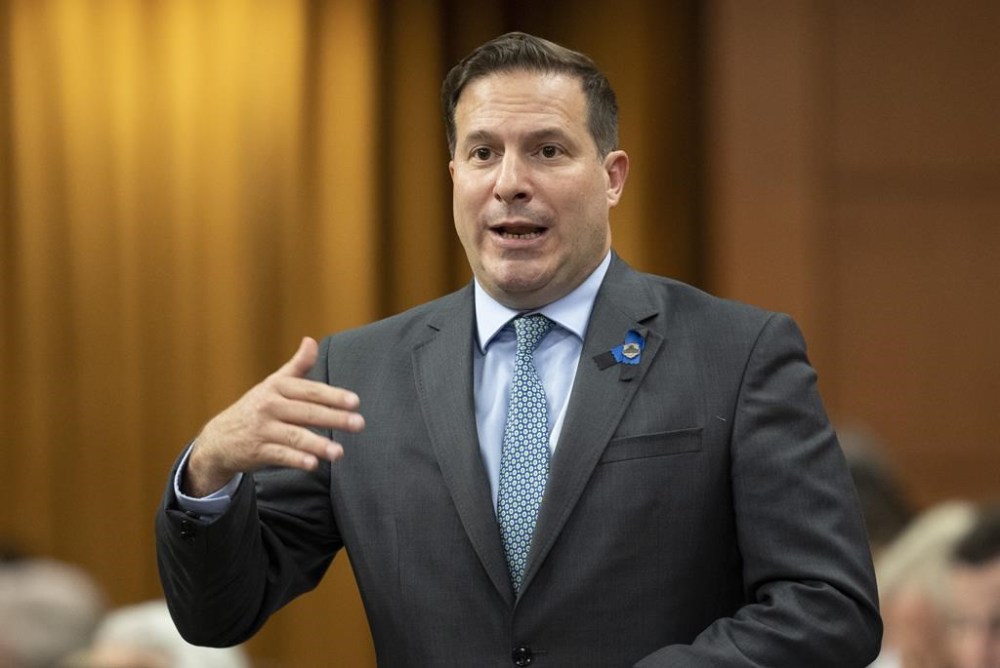Mendicino says email from Lucki doesn’t mean Emergencies Act was unnecessary
Advertisement
Read this article for free:
or
Already have an account? Log in here »
To continue reading, please subscribe:
Monthly Digital Subscription
$19 $0 for the first 4 weeks*
- Enjoy unlimited reading on winnipegfreepress.com
- Read the E-Edition, our digital replica newspaper
- Access News Break, our award-winning app
- Play interactive puzzles
*No charge for four weeks then billed as $19 plus GST every four weeks. Offer only available to new and qualified returning subscribers. Cancel any time.
Read unlimited articles for free today:
or
Already have an account? Log in here »
Hey there, time traveller!
This article was published 24/10/2022 (793 days ago), so information in it may no longer be current.
OTTAWA – Public Safety Minister Marco Mendicino is brushing off concerns about an email the RCMP commissioner sent to his office hours before the government invoked the Emergencies Act last February that casts doubt on the notion that police needed the act’s extraordinary powers.
The email from Commissioner Brenda Lucki to Mendicino’s chief of staff, Mike Jones, said she didn’t think police had exhausted every tool at their disposal to end the weeks-long occupation of downtown Ottawa by protesters demanding an end to COVID-19 restrictions.
The Feb. 14 email was submitted as evidence at the Public Order Emergency Commission, which is investigating whether the government was justified in declaring the emergency.

Asked about the new evidence on Tuesday, Mendicino repeated that the unprecedented use of the legislation was “necessary” to resolve the situation. He reiterated that the government was acting on the advice of its partners.
In the email, Lucki had laid out a list of “additional tools that would be useful to have on the enforcement front” if the act were invoked, including designating protected places around airports, ports and transit stations to deter protests; giving police the power to commandeer heavy equipment such as tow trucks to remove vehicles; and banning people from bringing things like gas and diesel to a protest.
But she followed that list by saying, “I am of the view that we have not yet exhausted all available tools.”
“There are instances where charges could be laid under existing authorities for various Criminal Code offences occurring right now in the context of the protest,” Lucki wrote, adding that the provincial state of emergency recently declared in Ontario would also help police.
The note stands in contrast to Mendicino’s previous statements to Parliament.
In April, he told a parliamentary committee studying the Liberal government’s decision to use the act that the government was in regular consultation with the RCMP at the time.
He said his government “invoked the act because it was the advice of non-partisan professional law enforcement that the existing authorities were ineffective at the time to restore public safety.”
Following his testimony, the Ottawa Police Service, Ontario Provincial Police and RCMP all denied that they had asked for the emergency powers.
Lucki told members of Parliament and senators in the spring that the powers were useful in dislodging the protesters who were entrenched in Ottawa’s streets for weeks.
She said there were times at which the RCMP would have used the powers sooner, had they been available to officers. She made no mention of her Feb. 14 email to the public safety minister’s office.
On Tuesday, Mendicino pointed to Lucki’s committee testimony and said it was clear that she felt invoking the law was necessary.
“She said very clearly that the Emergencies Act was needed to resolve the situation on the ground, not only in Ottawa, but across the country,” he told reporters.
“This was a government decision. We listened carefully to the array (of) advice that we were getting at the time. We consulted with various partners provincially, territorially, etc., but we took the decision because it was necessary.”
Both the parliamentary committee study and the public inquiry are required under the Emergencies Act as an accountability measure.
Mendicino and Lucki are both expected to testify before the commission, which is holding public hearings until late November.
This report by The Canadian Press was first published Oct. 25, 2022.


